Delhi's all smogged up! Capital turns into gas chamber as pollution levels rise significantly
The rampant firecracker bursting on Diwali and stubble burning has led to the air quality being in the ‘severe’ category with no respite till Sunday evening
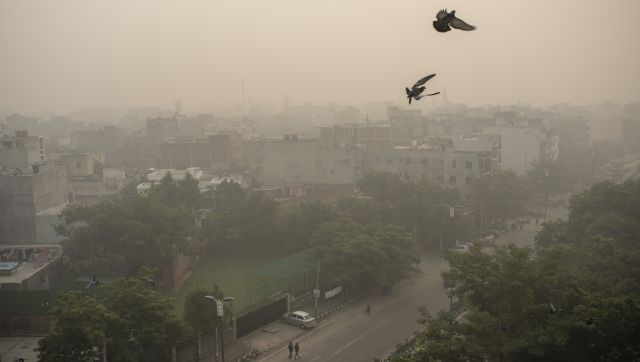)
It’s hard to breathe! Delhi’s air quality continues to be in the ‘severe’ category for the second day on Saturday as the readings showed that it was at 533. The air quality deteriorated a day after Diwali with people complaining of itchy throats and watery eyes, as the firecracker ban was ignored. AP
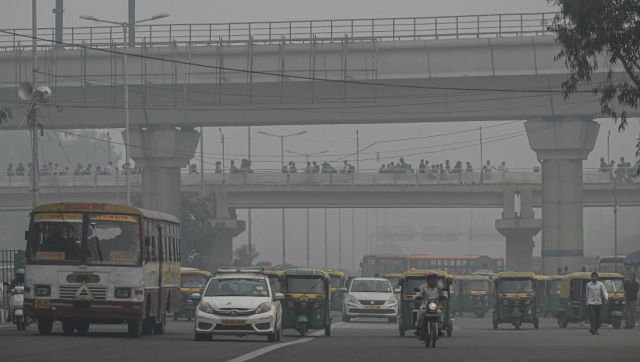)
The air quality on Friday had fallen to its poorest post-Diwali in five years with a deadly cocktail of noxious fumes from firecrackers and stubble burning pushing the 24-average AQI to 462, according to data from the Central Pollution Control Board (CPCB). A thick layer of acrid smog hung over Delhi-NCR after residents flouted the ban on firecrackers to celebrate Diwali and emissions from farm fires in the region peaked at 36 percent. AFP
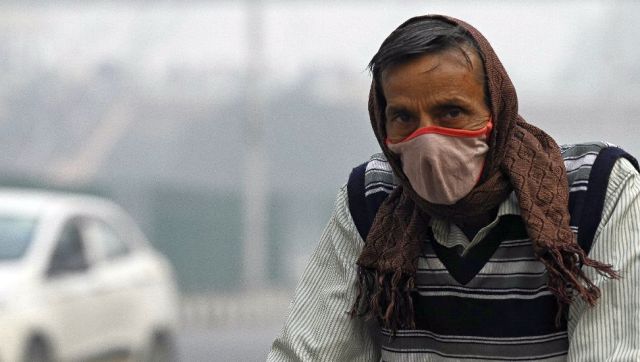)
As per reports, the concentrations of Particulate Matter (PM) 2.5 stood at 341 per cubic metre at Jantar Mantar in the city on Saturday morning, against the World Health Organisation’s standard of 25. This causes grave problems with people already suffering from respiratory problems. AFP
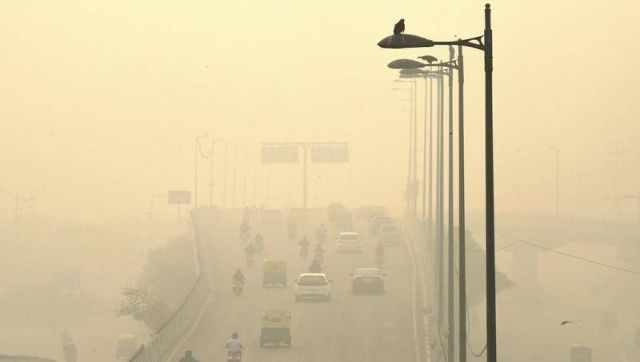)
The System of Air Quality and Weather Forecasting and Research (SAFAR) has predicted that conditions in Delhi will continue to be bad and residents will only get some relief post November 7. PTI
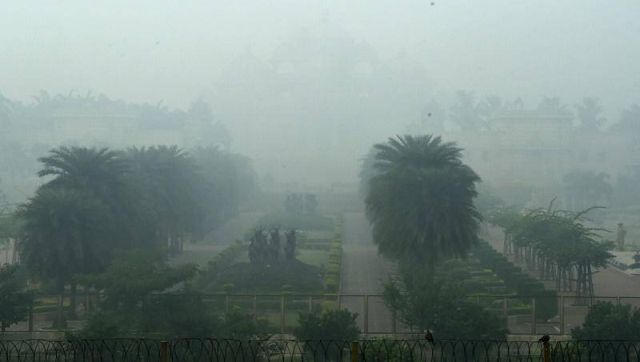)
Air pollution in Delhi typically worsens in October and November due to farmers burning stubble in neighbouring states, unfavourable wind speed and emission of fumes by vehicles in the city. Firecrackers ignited for Diwali add to the problem. In this image, the smog is so severe that one would struggle to find the Akshardham Temple, which is shrouded. PTI
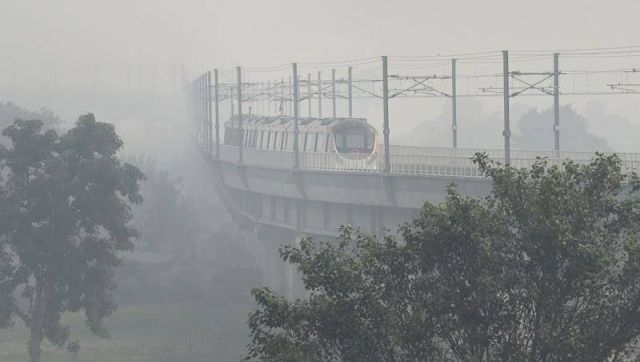)
The capital city has the worst air quality of all world capitals. Ahead of the festive season, the Delhi government had announced a complete ban on firecrackers till January 1, 2022. However, all that was forgotten as people burst crackers with much gusto. PTI
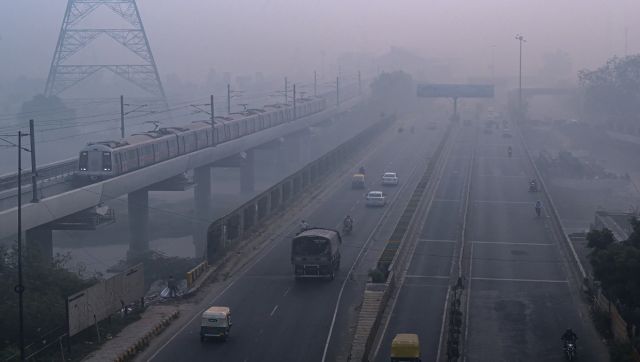)
The pollution levels in the National Capital Region (NCR) were also in the ‘severe’ category with Gurugram and Noida recording AQI of 591 and 452 respectively on Saturday morning. PTI


)
)
)
)
)
)
)
)



